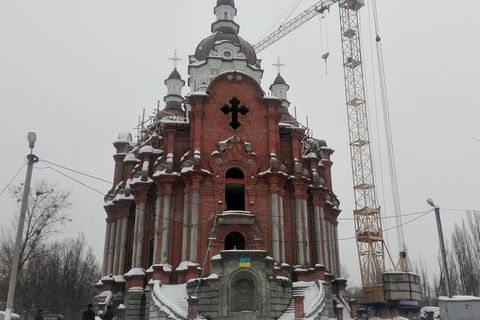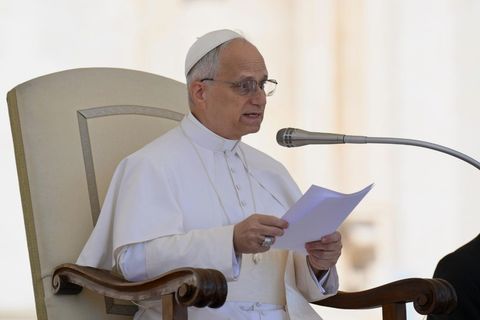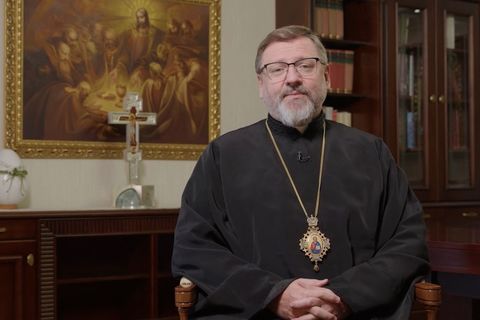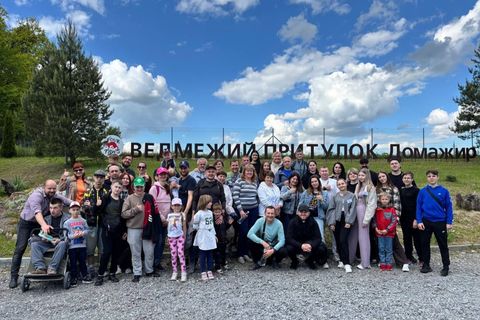“Tireless grandmothers” weave camouflage nets, and the church becomes a point of invincibility — how the UGCC lives in Poltava region
Every morning, a group of parishioners gathers near the church, begins their work with prayer, and weaves camouflage nets for defenders to the accompaniment of Ukrainian songs.
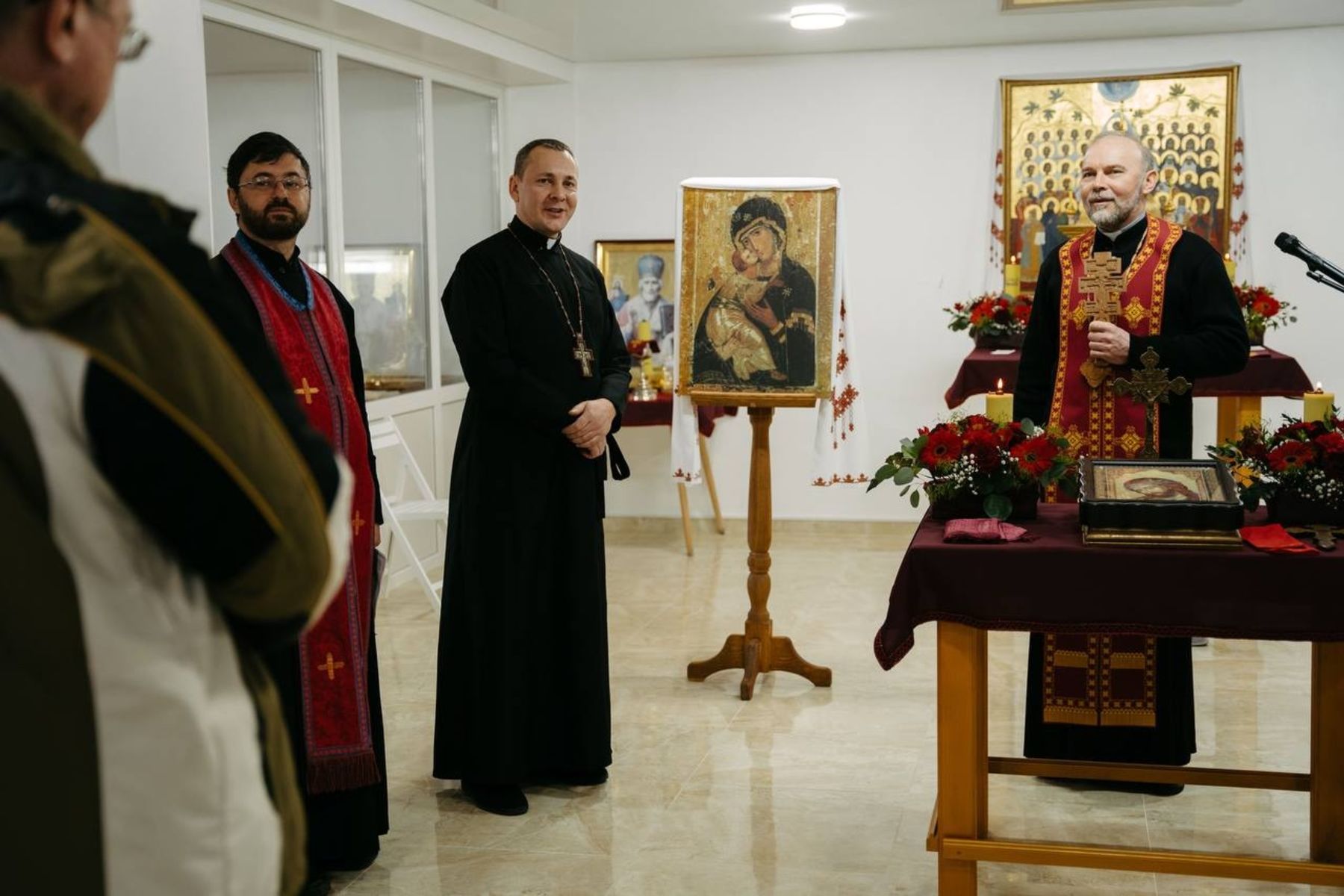
Fr. Volodymyr Rakovetsky, a priest of the Ukrainian Greek Catholic Church in Poltava and the village of Vyitivka, shared in an interview with the Information Department of the Ukrainian Greek Catholic Church how the Church in Poltava has become a true point of invincibility.
They call themselves the “unflagging grandmothers.” Each morning, these women gather at the Church of All Saints of the Ukrainian People in Poltava, begin their work with prayer, and knit camouflage nets for our defenders. As they work, they sing Ukrainian songs and support one another.
“These grandmothers are an inspiration to many, especially the younger generation,” said Fr. Volodymyr. This is just one example of how Greek Catholic parishes in the Poltava region have become not only places of prayer but true points of resilience.
Fr. Volodymyr Rakovetsky, a priest of the Ukrainian Greek Catholic Church in Poltava and the village of Vyitivka, shared in an interview with the Information Department of the Ukrainian Greek Catholic Church how the Church in Poltava has become a true point of invincibility.
Each morning, a group of elderly women — who call themselves the “unflagging grandmothers” — gathers at the Church of All Saints of the Ukrainian People in Poltava. They begin their day with prayer and then knit camouflage nets for Ukraine’s defenders. As they work, they sing Ukrainian songs and support one another. “These grandmothers are an inspiration to many, especially the younger generation,” said Fr. Volodymyr. This is just one example of how Greek Catholic parishes in the Poltava region have become not only places of prayer but true points of resilience.
Fr. Volodymyr is one of the first priests of the Ukrainian Greek Catholic Church in the Poltava region. In 2012, he and his family transformed an ordinary house in Vyitivka into a chapel with their own hands. Local children, inspired by what they saw, began to help — and that’s how the first Greek Catholic parish in the region was born.
“With the onset of the full-scale invasion, the parish has become a spiritual home for many — both locals and internally displaced persons,” the priest explains. A major point of invincibility has been set up near the church by the Mudra Sprava (Wise Cause) Foundation. People come here not only to pray but also to seek advice, support, and a sense of security.
The hardest part of ministry, Fr. Volodymyr admits, is sharing in people’s pain — especially when it comes to the loss of loved ones. “You can’t always provide answers, comfort, or help. There is a desire to help immediately, to soothe.” At the same time, he says, the greatest joy is witnessing how a wounded heart gradually begins to heal. “When a person finds hope, their eyes light up, and they begin to look at life in a new way.”
The priest dreams of expanding the UGCC’s presence in the Poltava region. “The greatest need is to have more priests. It’s essential to have a church in every district,” he says. Fr. Volodymyr’s vision is a church that is always open: “When the church is always open, people can come in with their questions, concerns, and hopes — and realize they are welcome here at any time.”
There are plans to complete the construction of the Church of All Saints of the Ukrainian People and to open a spiritual and social center next to it. It will include a kitchen for those in need, youth spaces, and a place for rehabilitation. “All plans are always about people, with people, and about their dignity,” the priest emphasizes.
The UGCC Department for Information